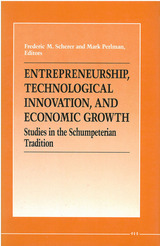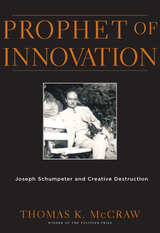

This book offers the first full-length treatment of Joseph Schumpeter's political thought. Schumpeter's theory of democracy as a competition among elites has influenced several generations of political scientists, but this book is the first to show that Schumpeter also conceived of democracy as a powerful transformative tendency leading toward the establishment of democratic socialism. Deploring this prospect, he theorized elite-dominated forms of society in which democratic change could be reined in.
The contrasts between the two perspectives are striking. The neglected transformative view, which this book expounds, stressed the importance of democratic beliefs and ideology, whereas the elite conception minimized their significance. The transformative perspective highlighted the radicalizing, dynamic effects of movements that attempt to realize democratic values and act upon democratic ideologies, while the better-known elite model depicted democracy in static terms and as institutionally stable.
Despite the sharp contrasts, both perspectives were part of Schumpeter's complex and deeply conservative response to political change in his lifetime. Precisely because he viewed democracy as a potent transformative social force, he labored strenuously to theorize a form of society in which elites could restrain the pace and nature of democratic change.

Pan Am, Gimbel’s, Pullman, Douglas Aircraft, Digital Equipment Corporation, British Leyland—all once as strong as dinosaurs, all now just as extinct. Destruction of businesses, fortunes, products, and careers is the price of progress toward a better material life. No one understood this bedrock economic principle better than Joseph A. Schumpeter. “Creative destruction,” he said, is the driving force of capitalism.
Described by John Kenneth Galbraith as “the most sophisticated conservative” of the twentieth century, Schumpeter made his mark as the prophet of incessant change. His vision was stark: Nearly all businesses fail, victims of innovation by their competitors. Businesspeople ignore this lesson at their peril—to survive, they must be entrepreneurial and think strategically. Yet in Schumpeter’s view, the general prosperity produced by the “capitalist engine” far outweighs the wreckage it leaves behind.
During a tumultuous life spanning two world wars, the Great Depression, and the early Cold War, Schumpeter reinvented himself many times. From boy wonder in turn-of-the-century Vienna to captivating Harvard professor, he was stalked by tragedy and haunted by the specter of his rival, John Maynard Keynes. By 1983—the centennial of the birth of both men—Forbes christened Schumpeter, not Keynes, the best navigator through the turbulent seas of globalization. Time has proved that assessment accurate.
Prophet of Innovation is also the private story of a man rescued repeatedly by women who loved him and put his well-being above their own. Without them, he would likely have perished, so fierce were the conflicts between his reason and his emotions. Drawing on all of Schumpeter’s writings, including many intimate diaries and letters never before used, this biography paints the full portrait of a magnetic figure who aspired to become the world’s greatest economist, lover, and horseman—and admitted to failure only with the horses.
READERS
Browse our collection.
PUBLISHERS
See BiblioVault's publisher services.
STUDENT SERVICES
Files for college accessibility offices.
UChicago Accessibility Resources
home | accessibility | search | about | contact us
BiblioVault ® 2001 - 2024
The University of Chicago Press









